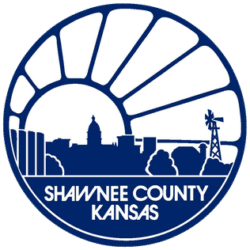 Sometimes court reporters can overstep their boundaries. It happened in Kansas, as an attorney representing a court reporter who worked the Shawnee County, Kansas murder trial of Dana Chandler conceded Friday his client violated professional ethics by posting to social media personal opinions about the case, but sought leniency from the Kansas Supreme Court in deciding the punishment.
Sometimes court reporters can overstep their boundaries. It happened in Kansas, as an attorney representing a court reporter who worked the Shawnee County, Kansas murder trial of Dana Chandler conceded Friday his client violated professional ethics by posting to social media personal opinions about the case, but sought leniency from the Kansas Supreme Court in deciding the punishment.
A court reporter named April Shepard admitted to violating a rule requiring court reporters to maintain impartiality toward each participant in all aspects of court proceedings, including a tight-lipped approach to pending cases outside judicial settings.
The State Board of Examiners of Court Reporters recommended that she be publicly reprimanded for the infraction, but Shepard requested the Supreme Court impose a less-severe private reprimand.
So What Did Shepard Do
Her offense was in 2016 when she posted to Facebook a series of remarks declaring Chandler guilty in a double-homicide and defending the conduct of prosecutor Jacqie Spradling and Judge Nancy Parrish. The Chandler case was still on appeal at the time. In 2018, the Supreme Court overturned Chandler’s guilty verdicts with an opinion that concluded Spradling engaged in prosecutorial misconduct.
Todd Thompson, who represented the Board of Examiners in oral argument before the Supreme Court, said Shepard directly violated the code of conduct. Shepard said online Spradling didn’t distort facts in the Chandler case, Thompson said, but the Supreme Court found to the contrary.
A public reprimand is appropriate to inform the citizenry of this type of transgression in the legal system and consequences of that unethical behavior, he said.
James Chappas, Shepard’s attorney for the Supreme Court’s disciplinary hearing, said it would be excessive to burden Shepard with a public rebuke. He said it would be unjust for the state to “squash” people in a disciplinary process based on a public need-to-know theory.
Chief Justice Lawton Nuss, presiding at his final session of oral argument as a member of the Supreme Court, said even the appearance of partiality by someone involved in the court system sent a troubling message to the public.
What Was the Chandler Case About
Michael Sisco and his fiance Karen Harkness were killed by gunfire in Topeka, Kansas in 2002. Chandler, Sisco’s ex-wife, was arrested in 2011 and charged with first-degree murder. A Shawnee County Kansas jury found her guilty in 2012. Her appeal prompted the Supreme Court’s reversal of the convictions. Chandler remains incarcerated awaiting retrial.
In December, a state board found probable cause to believe Spradling, the former Shawnee County chief deputy district attorney, violated the Kansas Rules of Professional Conduct in prosecution of Chandler. He disciplinary case hasn’t ended.
The online comments by Shepard were posted while she engaged in debate about the Chandler case with Keen Umbehr, an attorney who has worked on Chandler’s behalf. Shepard said online she was confident Chandler was guilty because “I was there, I reported that whole case. I saw firsthand this case.” She acknowledged Spradling “pushed a little too far at times” during the trial and defended Parrish, the trial judge.
Was She Baited
Chappas, Shepard’s attorney, told justices that Umbehr enticed his client into commenting on the trial in an effort to help Chandler’s cause.
“I think supporters of Miss Chandler purposely baited Miss Shepard to engage in conversations about this particular trial,” Chappas said.
“Your client knew they were public, right?” asked Justice Caleb Stegall.
Justice Dan Biles said the back-and-forth on Facebook proved Shepard took sides on an appellate case before the Supreme Court.
“That’s showing partiality,” Biles said. “She said, I believe Jacqie Spradling. Implicit in that statement is the claim of prosecutorial misconduct is wrong.”
CourtScribes.com supports all states and programs that aid in the court reporting world, and we too are ready to serve you in your court reporting, videography services, interpreters, live-streaming, and video-to-text synchronization.
Although the majority of cities that offer CourtScribes’ services are in Florida, the company home base, other cities all across these United States that CourtScribes offers services in, are the following: Jacksonville, Miami, Tampa, Port St. Lucie, Fort Lauderdale, Cape Coral, Coral Springs, Clearwater, Palm Bay, Fort Myers, Weston, Sarasota, Orlando, St. Petersburg, Hialeah, Stuart, Hollywood, Naples, West Palm Beach, Boca Raton, Deerfield Beach, Jupiter, Key West, Coral Gables, Maryland, Manhattan, Buffalo, Washington DC, Baltimore, Bowie, Virginia, Frederick, Albany, New York, Brooklyn, Westchester, Gaithersberg, and Rockville.
